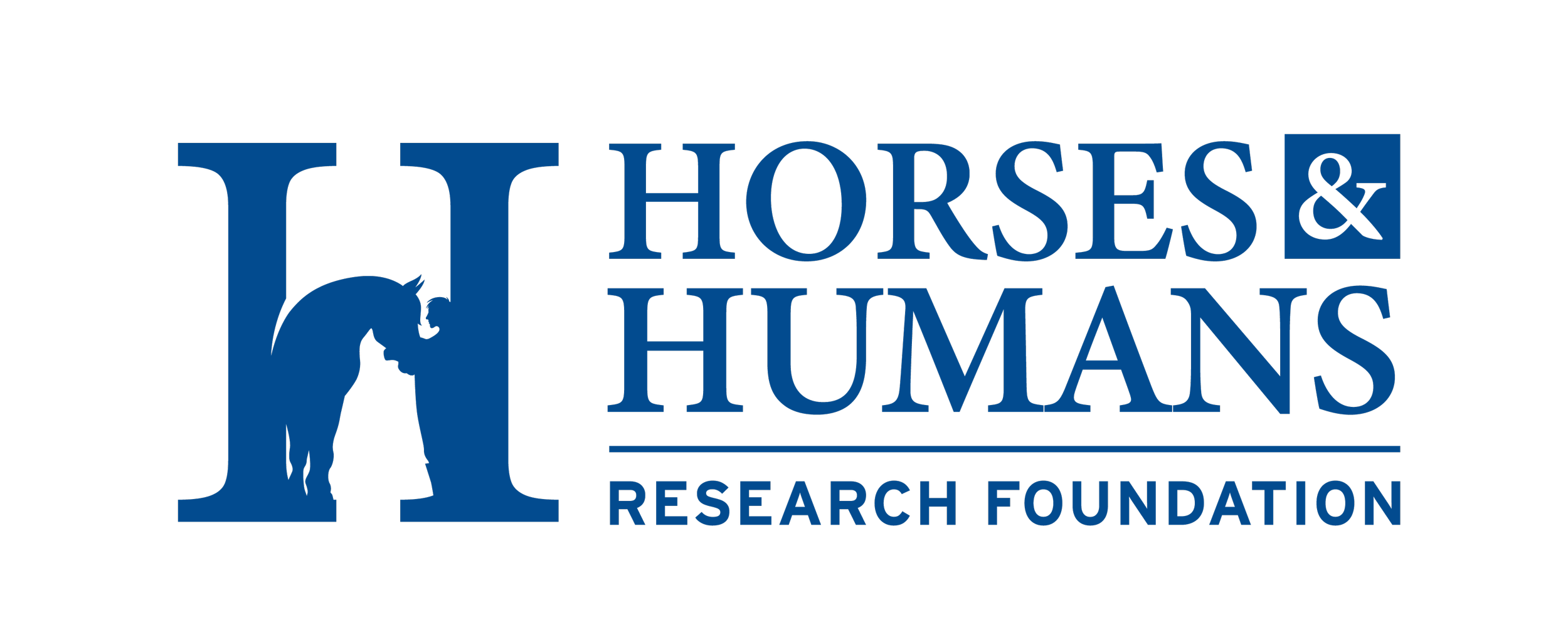For Immediate Release
Contact: Ken Boyden, JD, EdD, Executive Director, Horses and Humans Research Foundation
PO Box 23367
Chagrin Falls, OH 44022
Email:info@horsesandhumans.org
Web:http://www.horsesandhumans.org
Comparative Effectiveness of Stress Management Techniques and Therapeutic Riding on Stress Levels of Adolescents with Autism Spectrum Disorder
Chagrin Falls, Ohio, January 22, 2019- Researchers at Slippery Rock University recently completed a study funded by the Horses and Humans Research Foundation (HHRF) focused on the comparative effectiveness of stress management techniques and Therapeutic Riding (TR) on stress levels of adolescents with Autism Spectrum Disorder (ASD). The team, led by principal investigator Dr. Martha Kemeny, compared an evidence-based stress management protocol (HeartMath), a TR protocol, and a no treatment control for 27 young adults ages 13-22 with ASD. All interventions were one hour in length for ten consecutive sessions. The study was a randomized three-period crossover trial in which participants were randomly assigned to the order in which they receive TR, HeartMath, and no treatment control.
Results of this study show that this particular stress management protocol and therapeutic riding protocol are equally effective in decreasing salivary cortisol. However, in comparing the two phases, the therapeutic riding protocol showed greater changes in cortisol levels than did the stress management program.
Pam Cusick, Board President of Horses and Humans Research Foundation, stated "We are thrilled with the results of this study. Adolescents with autism spectrum disorder report high stress and anxiety levels that impact functioning in the community. We are pleased to see confirmation that therapeutic riding has a positive impact on stress levels and hope that this research will encourage more adolescents with autism will consider therapeutic riding as an option."
For more information regarding this study and other past HHRF funded research visit our website www.horsesandhumans.org.
###
Mission: Through sustained investment in rigorous research, HHRF serves as a catalyst to advance global knowledge of horse-human interactions and their impact on health and wellness.
Horses and Humans Research Foundation (HHRF) is dedicated to funding research to investigate the equine-assisted activities and therapies field. Since its founding, HHRF has awarded over $600,000 in professional research efforts led by thirteen research teams in the United States, Canada and Germany. HHRF is a non-endowed foundation dependent solely on donations. To make a donation and/or learn more about this and other Horses and Humans Research Foundation projects visit http://www.horsesandhumans.org


